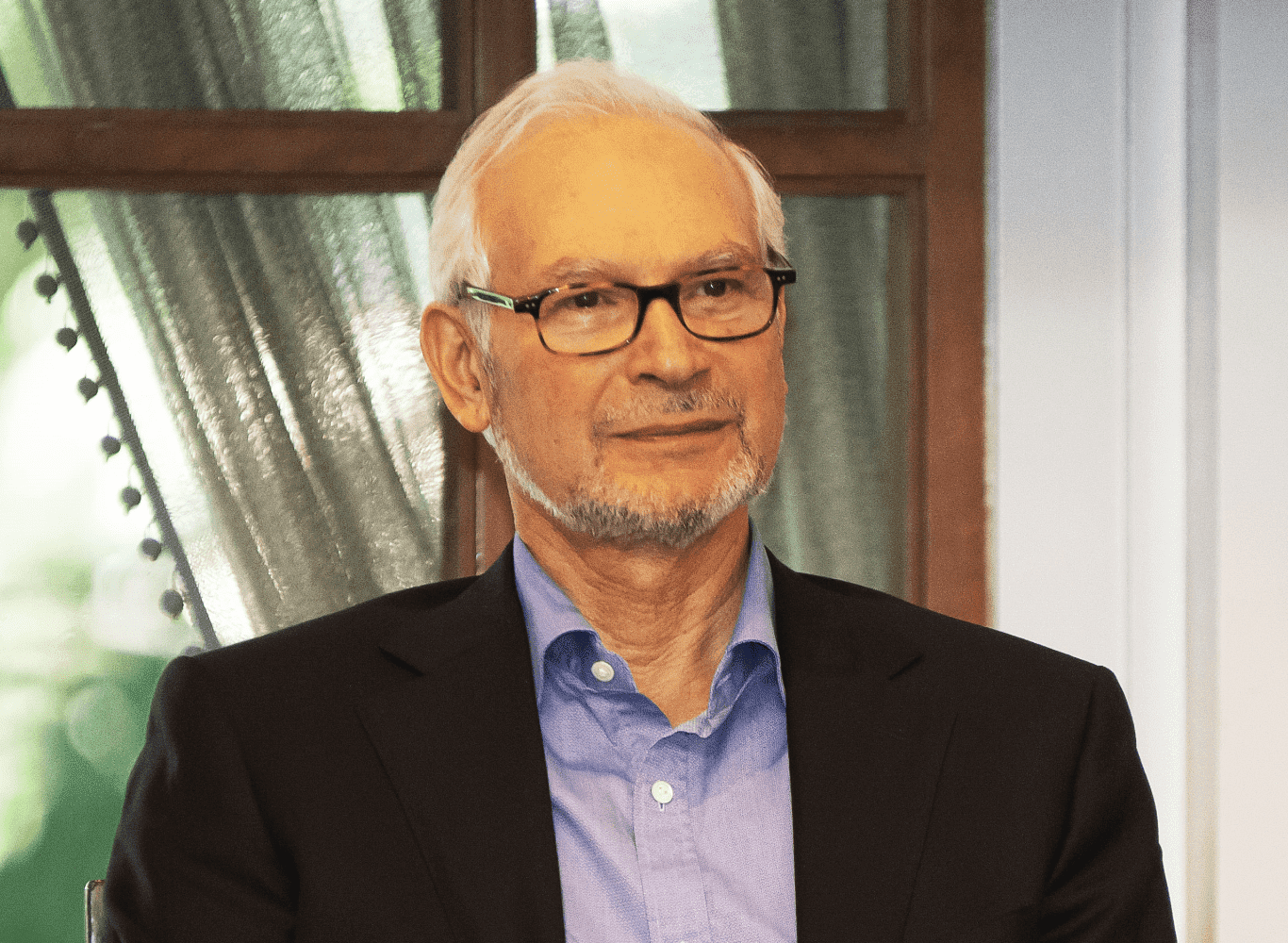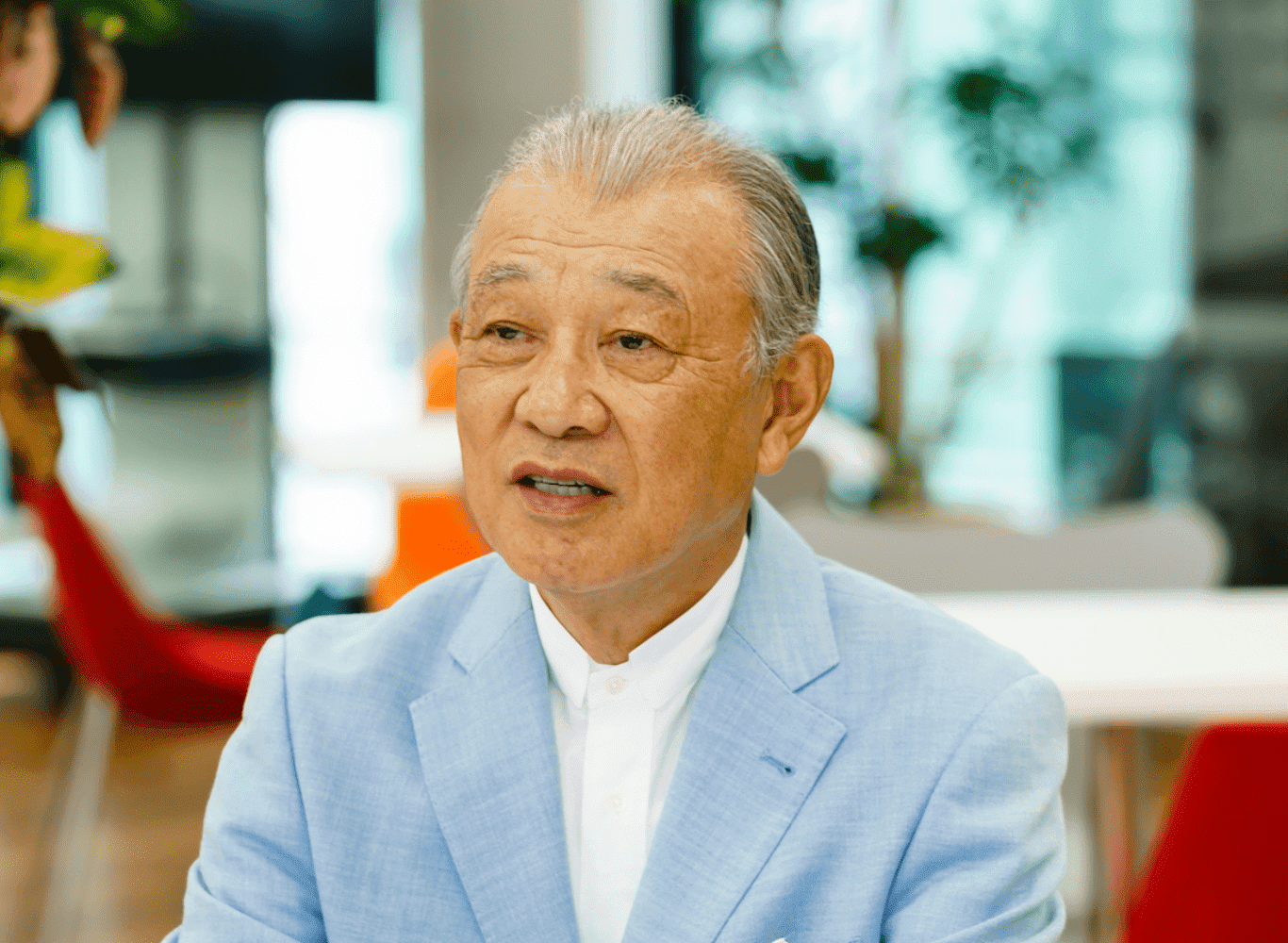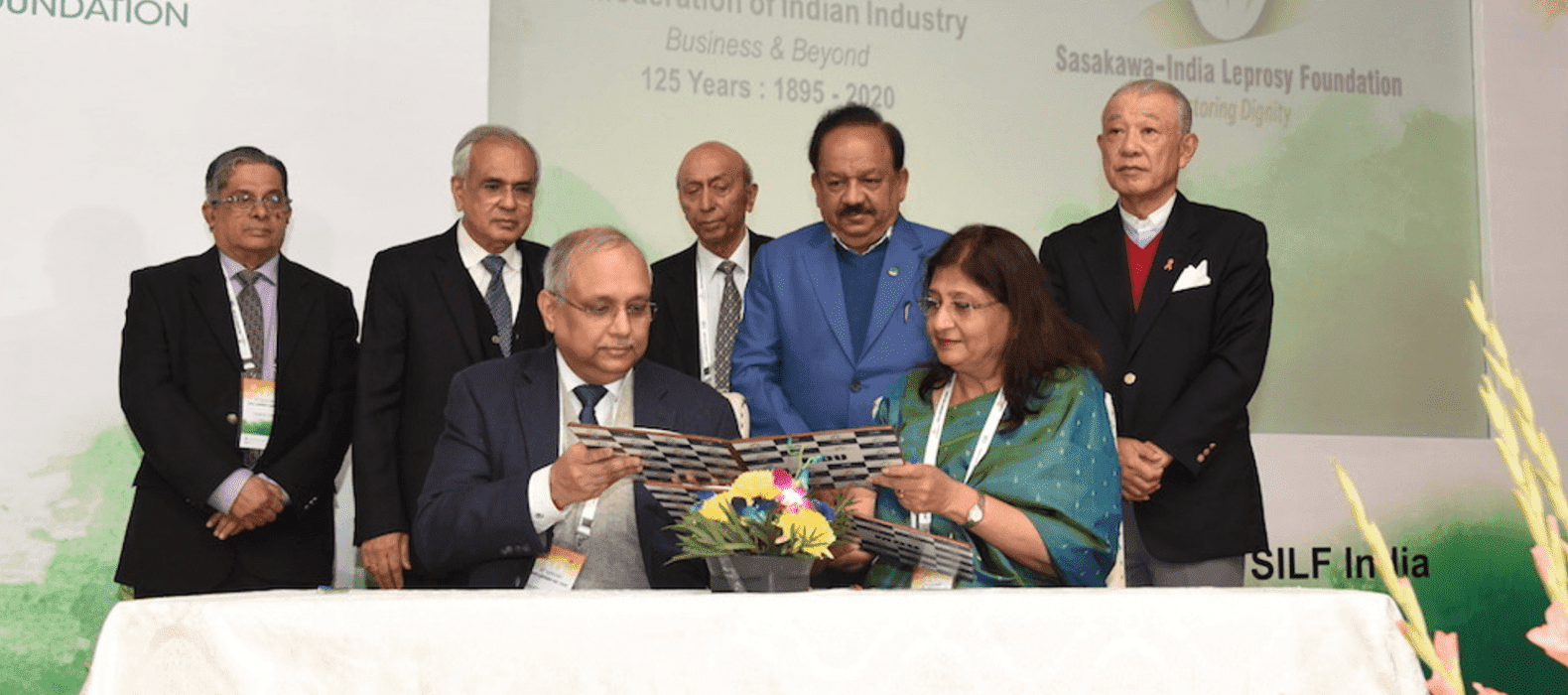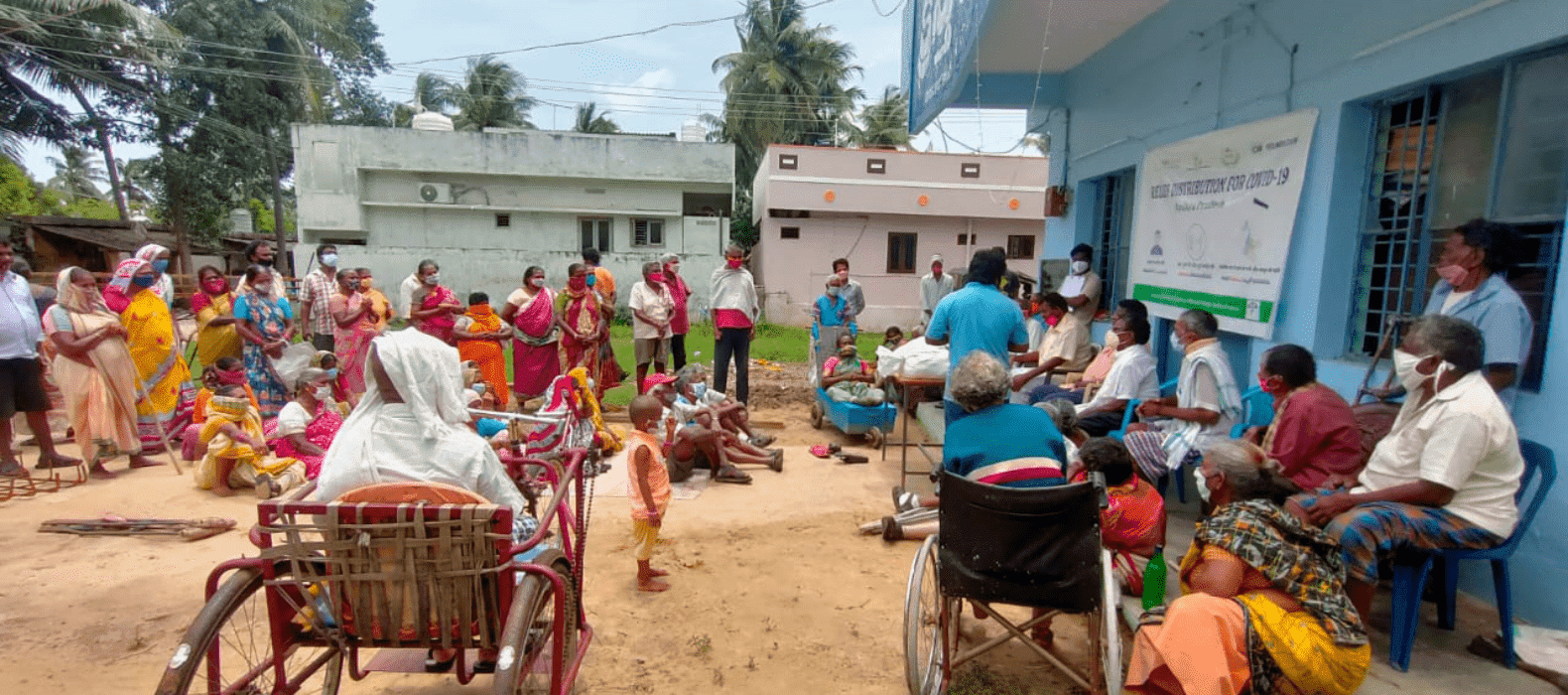Dialogue
On the occasion of the 17th Global Appeal, Mr. Yohei Sasakawa, WHO Goodwill Ambassador for Leprosy Elimination and Chairman of The Nippon Foundation, and Mr. Jamshyd Godrej, Chairman of CII Foundation, discuss what philanthropic foundations can do to help end stigma and discrimination in leprosy.

Mr. Jamshyd N Godrej
Mr. Godrej is chairman of the Board of Godrej & Boyce Manufacturing Company Limited. The Godrej group are leaders in home appliances, consumer durables, office equipment, industrial products, consumer products and services. He is also the Chairman of the CII Sohrabji Godrej Green Business Centre, a Centre of Excellence for green buildings, energy efficiency, energy conservation, non-conventional energy sources, water policy and water conservation. He was awarded the Padma Bhusan, India’s third highest civilian honor, in April 2003.

Mr. Yohei Sasakawa
Mr. Sasakawa is chairman of The Nippon Foundation, a private, non-profit foundation established in 1962 for the purpose of carrying out philanthropic activities in and outside of Japan.
Appointed by WHO’s Director-General as Goodwill Ambassador for Leprosy Elimination, his global fight against leprosy and its accompanying stigma and social discrimination is an issue to which he has remained highly committed for more than 40 years.
- We decided to send the message – together with the world’s foundations – that leprosy must not be forgotten amid the coronavirus pandemic.
- Yohei Sasakawa:
- The Global Appeal to end stigma and discrimination against persons affected by leprosy is now in its 17th year. For the latest appeal, we decided to send the message – together with the world’s foundations – that leprosy must not be forgotten amid the coronavirus pandemic. I would like to express my gratitude once again that the CII is supporting this appeal, thanks to your assistance.
- Jamshyd N. Godrej:
- We are glad to endorse the Global Appeal on ending stigma attached to leprosy. I am delighted that CII has signed an MoU with the Sasakawa-India Leprosy Foundation (S-ILF) last year to drive industry action to contribute to the ending of leprosy in India and fight the stigma attached to it, as CII has shared a long-standing relationship with S-ILF.
The implications of leprosy go beyond receiving anti-infective treatment, highlighting a need for social and economic rehabilitation for many. Our compliments to S-ILF, which has been in the forefront of the mission of ending the stigma and ensuring equal social, economic and cultural opportunities for those affected by leprosy. Based on this philosophy of collaboration for good, we will continue to work with S-ILF to realize a society free of leprosy and related problems. - Sasakawa:
- I am delighted that the tremendous efforts of S-ILF Chairman Tarun Das and CII Director General Chandrajit Bannerjee have led to the collaboration between S-ILF and the CII and the further strengthening of the relationship.

- Leprosy does not just affect the physical condition of the individual, it has consequences for the whole family and affected community, rolling even to the next generation.
- Godrej:
- You have been a pioneer in a wide range of social issues, exercising leadership on a global scale beyond borders. Your deep commitment and passion, which has touched innumerable lives, has been an inspiration for many of us.
- Sasakawa:
- India is the country with the most cases of leprosy in the world, but it is also the country taking the most initiatives against the disease. When India achieved the elimination of leprosy as a public health problem at the end of 2005—something people thought would be impossible—it was acclaimed as “India’s miracle.” In many countries, once elimination is achieved, activities stagnate and patient numbers stop declining. But India kept up its case detection efforts after elimination, mainly through the activities of ASHA. Above all, organizations like S-ILF and organizations of persons affected by leprosy such as APAL are helping persons affected to better their lives and become self-reliant. Under the strong leadership of Prime Minister Modi, India is supporting these activities by setting an ambitious national goal of eliminating leprosy and the discrimination it causes by 2030. I highly appreciate India’s efforts.
- Godrej:
- When we talk of leprosy in India, while the country witnessed a very rapid and steep fall in prevalence of leprosy in the last few decades, we need to be cognizant of the fact that leprosy goes beyond the physical manifestation. The social stigma attached to the disease and its mental health ramifications remains an issue to be addressed. In India, the disease does not just affect the physical condition of the individual, it has consequences for the whole family and affected community, rolling even to the next generation.
We do recognize that awareness, rehabilitation and socio-economic integration need to go hand-in-hand with medical intervention. There is also a need to invest in knowledge generation and research. All this can only be achieved through intersectoral collaborative action; the role of industry is critical to move the needle and CII commits to strengthening industry action to address the issue.
- The impact of the coronavirus pandemic has been particularly hard on those in a vulnerable position.
- Sasakawa:
- I completely agree with you. Leprosy is not just a medical issue; it results in people being excluded from society, simply on the grounds that they have the disease. Persons affected by leprosy and their families are truly a community of those left behind. The coronavirus pandemic has affected people all over the world, but the impact of the virus and measures to prevent its spread has been particularly hard on those in a vulnerable position. Around the world, communities of persons affected by leprosy lost their livelihoods, didn’t have anything to eat and were unable to access even minimal health care.
- Godrej:
- In 2020, when the coronavirus spread wreaking havoc at an unprecedented scale, the CII Foundation, along with CII and affiliates, reached out to 8 million people affected by the pandemic, providing them with relief material and helping them in every way possible. In India, whilst the first wave led to severe loss of livelihood, a sharp fall in family incomes and deterioration in the quality of life for the vast majority of our population, during the second wave we witnessed India living through its worst nightmare in the form of a health catastrophe. Working closely with governments at the center and states, and leveraging industry support, our relief support was provided especially to the underprivileged and marginalized, such as migrant workers, daily-wage earners, the elderly and children, backward communities, persons with disabilities and nomadic tribes.
As part of relief efforts, we partnered with the S-ILF team to provide relief materials which included ration (food) and hygiene items to families living in leprosy colonies in Haryana, Delhi, Andhra Pradesh and Telangana states. We also facilitated laptop donations by CII members to ensure continuity of education to youth from these underprivileged colonies. 
- Sasakawa:
- I will continue to work the CII Foundation to improve the lives of persons affected by leprosy to the extent possible. As you point out, the involvement of industry and the approach taken by companies amid the coronavirus pandemic and in the post-COVID era will be very important. The Nippon Foundation is partnering with the Valuable 500, a global community of CEOs of leading corporations such as Sony, Microsoft, and Google that is committed to disability inclusion. Amid the pandemic and after, we must build a world in which diversity is respected. Our foundations’ responsibility to create a society in which no one is left behind is greater than ever. I hope that we can continue to work together with the foundations around the world who have supported this year’s Global Appeal to address the remaining challenges in leprosy.
- The Confederation of Indian Industry (CII) Founded in 1895, the Confederation of Indian Industry (CII) is a non-government, not-for-profit, industry-led and industry-managed organization, with over 9000 members from the private as well as public sectors, including SMEs and MNCs, and an indirect membership of over 300,000 enterprises from 294 national and regional sectoral industry. In January 2020, CII and Sasakawa-India Leprosy Foundation (S-ILF) signed an MoU to work together to address the challenges posed by leprosy in India, focusing on advocacy, CSR promotion and employment issues. View more >
- CII Foundation (CIIF) CII Foundation (CIIF) was set up by CII in 2011 to undertake a wide range of social development and charitable initiatives across India. CIIF works towards inclusive development by providing a meaningful bridge between marginalized communities and donors, especially the corporate sector. Its areas of intervention includes Education, Women Empowerment, Climate Change, Disaster Relief and Rehabilitation. View more >